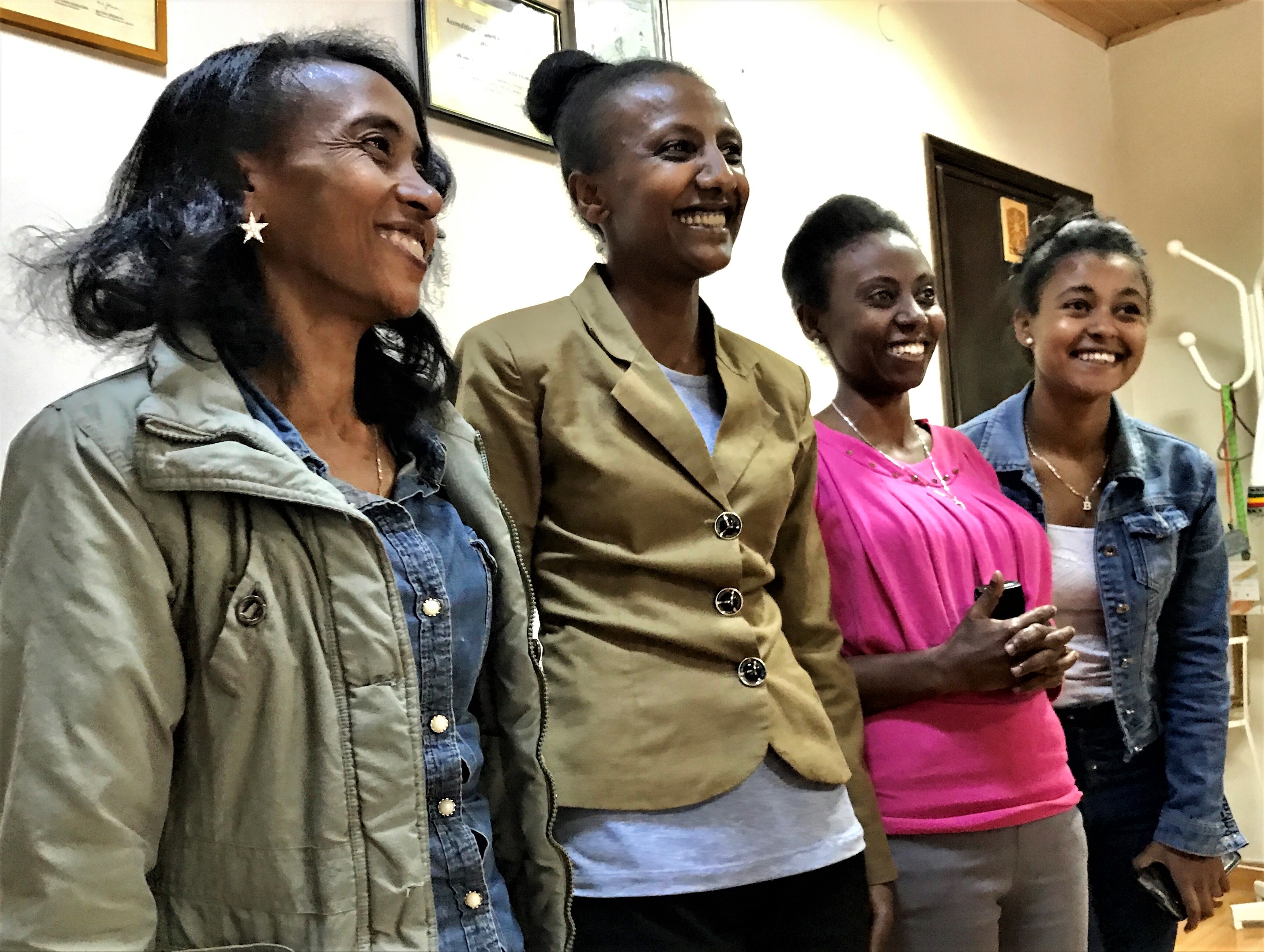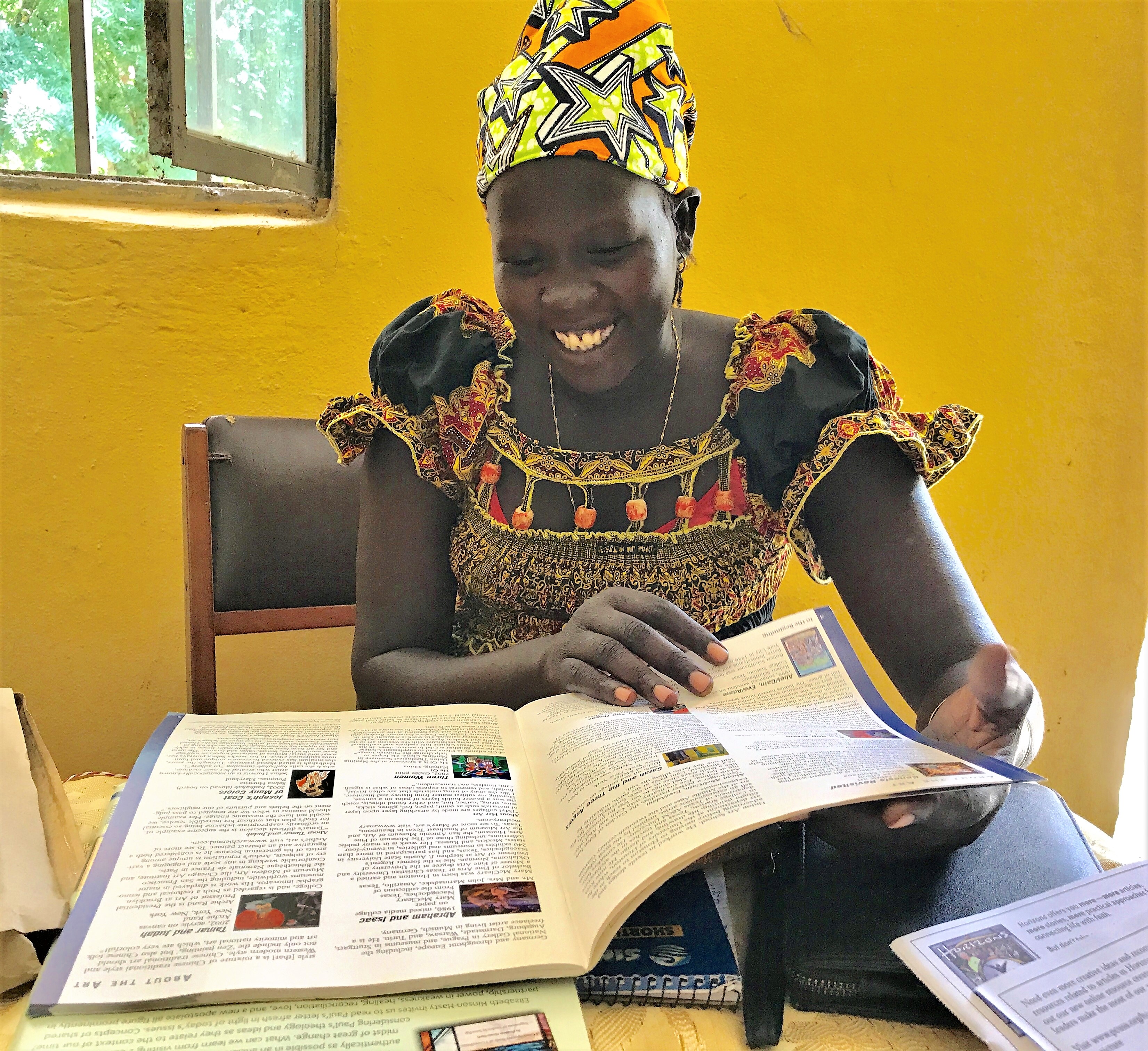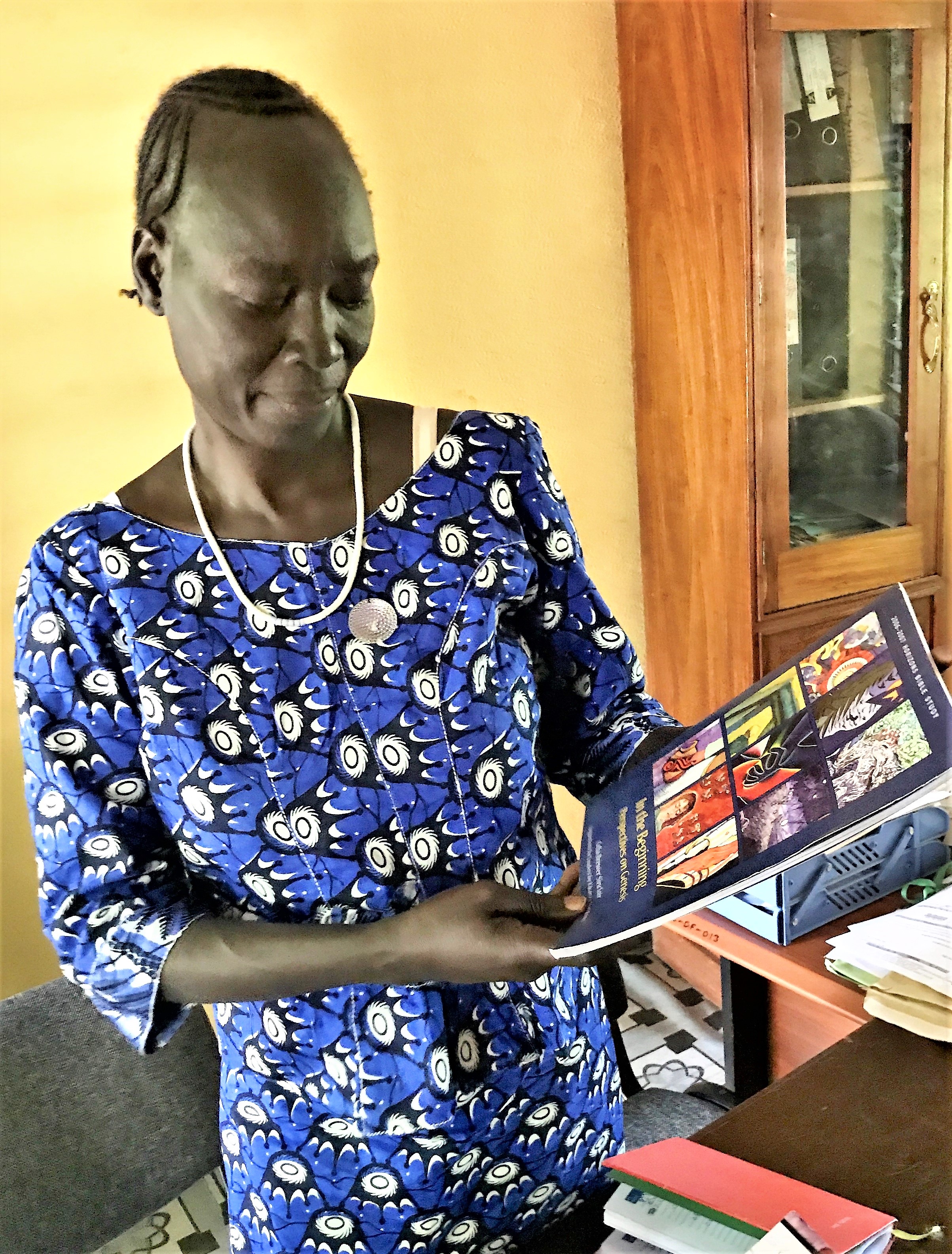Associate/Facilitator for Women’s and Children’s Interests, based in Malawi
September 2018
Write to Janet Guyer
Individuals: Give online to E200351 for Janet Guyer’s sending and support
Congregations: Give to D506385 for Janet Guyer’s sending and support
Churches are asked to send donations through your congregation’s normal receiving site (this is usually your presbytery)
Dear Friends,
At the end of September and the beginning of October, we had a wonderful trip to Ethiopia. We? Yes, this time I traveled with Sharon Kandel. Sharon and her husband, Lynn, are the regional liaisons for Ethiopia, Sudan and South Sudan, representing the Presbyterian Church (USA) to work with partner churches in these three countries. On this trip, we were able to visit three out of the six Bethel Synods, a cluster of synods within the Ethiopian Evangelical Church Makane Yesus (EECMY) with Presbyterian heritage. Traveling together worked well because sometimes our conversations with the church folk overlapped, and we could visit together. Sometimes we went in different directions, as we needed to touch base with different people. And at the end of each day, we could reflect together. Our conversations throughout tended to focus on how things are going in the Women’s Departments, and how HIV is affecting the church and community and how the church is responding to it.
Instead of taking you synod-by-synod in this letter, let me share with you the themes that I heard often. When there are significant differences by region, I will be more specific.
HIV and AIDS
Everywhere, the need for HIV and AIDS education is still high. To use a metaphor, the low-hanging fruit have already been picked; the people who are interested and easy to reach have been reached. At this time, those who for one reason or another more difficult to reach, whether due to language, physical location, economic status or other reasons, still need the correct, basic HIV and AIDS information. The churches are concerned, and one of the most heartbreaking questions I had to respond to was, “Why did the Presbyterian Church (USA) close down its AIDS office and program? Do they think that HIV is no longer a problem here?” Fortunately, I was able to share that the PC(USA) General Assembly in its last meeting identified HIV and AIDS as an area that we need to address more intentionally, and that I am now devoting some of my work to addressing HIV. I had come to Ethiopia to ask questions and learn more about the HIV and AIDS situation here.
Another area of concern is how to support people who are living with HIV. When people spoke of support, they were referring to both monetary aid and in-kind gifts. We talked about ways that churches might be able to get more involved with this, but the challenge is that there have been very generous donors who have provided the synods with money for just such support, but most of these funds have come to an end. It was in this context that we discussed the need for a more localized, grassroots model that congregations could take on rather than waiting for outside support. I am sure that this will be a continuing conversation.
Having said that, there are situations in which outside support for the synods is urgently needed to help the synods carry out God’s work in the context of HIV and AIDS. Here are just two.
First, the Gambella region, where there are two Bethel Synods, is the region in Ethiopia with the highest HIV prevalence (or infection) rate, with 6.4% of the population between the ages of 15-40 years infected with the virus. On top of that, it is the only region in Ethiopia, in fact the only region in which I work, where the prevalence rate is going up rather than down. Why? It could be one of any number of reasons. Language barriers? Low literacy rates? Very rural areas? Traditional/cultural practices? Probably some of each and more.
In that same Gambella region, partners say that it appears (and I have not been able to find any statistics) that the HIV infection rates in the refugee camps for South Sudanese refugees in the regions are troubling. Two things to understand about the South Sudanese refugee situation: First, before long there will be more refugees than host population in the region. Second, many of the people in the refugee camps are from similar or the same ethnic and language background as the populations of the two Gambella Bethel Synods. Both synods expressed this concern. I have seen elsewhere, South Africa for example, that when people have to be concerned for their survival from one day to the next, HIV does not take a high priority, and understandably so. In South Africa, when apartheid ended and people started to get on with living, they found HIV had already come into the population at alarming rates.
Churches are a logical fit for responding to HIV and AIDS. First, the church is a known and trusted entity in the community. It has been there from the days of community members’ parents and grandparents, and the belief is that it will continue to be there into the future. Church members speak the same language as the people in their communities, not only verbal language, but heart and cultural language as well. In this way, church members are able to communicate on a deeper, more trusted level. Finally, in the best of situations, church members approach people from the undergirding foundation of knowing on a deep level that God loves everyone and Christians are called to do the same.
Advancement of Women
In all the synods we visited as well as in the national offices of the EECMY, women’s education and women’s leadership training are very high priorities. This is true on many levels, from keeping girls in school (also a high priority for the Ethiopia government), to basic literacy training, to leadership in women’s groups and congregations, as well as in providing women access to bachelor’s and master’s degree-level education. In one synod, the president of the synod asked if we could please designate scholarships for women only because this could help counter the cultural biases in favor of men’s education only.
The last time I was in the US, someone from the office of the Presbyterian Women asked if the women in Africa might be able to use some of the old “Horizons” magazine resources. It was my privilege to be able to share with the women’s offices of the Bethel Synods several past copies of the Bible study issue of Presbyterian Women’s “Horizons” magazine. The women were so excited to have some Bible Study material. I will be interested to learn how it was used.
A highlight of the trip was visiting the Makane Yesus Seminary and meeting with four young women whose school fees the PC(USA) is helping pay this year. Sharon and I had a nice talk with the young women, getting to know them, their vision, and their sense of calling a bit. I will introduce them to you briefly.
Please note that BTh is the Bachelor in Theology program, a 4-year program. MTh refers to Master in Theology, which is a 2-year program.
Ebise Jabesa Nemera – 2nd year, BTh. Ebise’s passion is for pastoral work, including preaching, teaching and counseling.
Mariam Jirata – 4th year, BTh, finishing this year. Mariam’s interest is in doing evangelism and working with Women’s Groups and Youth Groups.
Almaz Kebed – 1st year MTh (Masters in Theology). Almaz’s passion is for working with women, especially marginalized women. Before returning to do her MTh, she worked with prostitutes in her home area and hopes to continue working with marginalized women when she graduates at the end of next year.
Mekedes Tadess – 1st year, BTh Mekedes took part in a one-year pre-seminary program. This is a new program to help prepare women who may be coming in with some gaps that the school can help them work through to improve their outcomes in the theology school. While taking part in this program, Mekedes studied for her high school equivalency exam. When the results came back, her results were so good that she could have chosen any university in the country. However, she believes her calling is to pastoral ministry, so she is now enrolled in the first year at Makane Yesus Seminary.
Three of these young women will continue to need scholarships next year. Also, there is another woman I have known for years who is sensing the call to go to seminary, so there will again be four women whom I would like to see receive scholarships that will support them in becoming leaders in their church communities. I pray that a way will come open so that the PC(USA) will be able to continue to walk with these women in the coming years.
In closing, I would like to thank you for your continuing support. I appreciate your interest, your emails, your financial support and your prayers. Please continue lifting up God’s ministry — and me — in these ways. I feel honored that we are working together to do God’s work here in Africa.
Blessings,
Janet
![]() You may freely reuse and distribute this article in its entirety for non-commercial purposes in any medium. Please include author attribution, photography credits, and a link to the original article. This work is licensed under a Creative Commons Attribution-NonCommercial-NoDeratives 4.0 International License.
You may freely reuse and distribute this article in its entirety for non-commercial purposes in any medium. Please include author attribution, photography credits, and a link to the original article. This work is licensed under a Creative Commons Attribution-NonCommercial-NoDeratives 4.0 International License.



